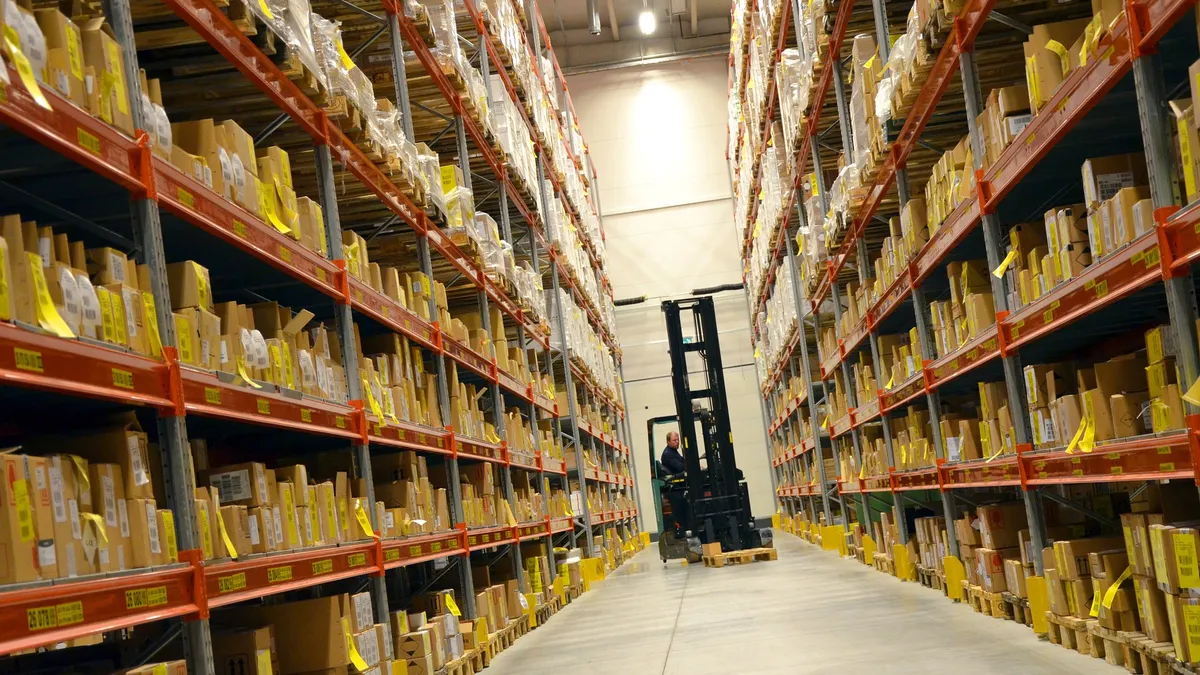Dive Brief:
- Staffing firm Hamilton-Ryker has employed virtual reality (VR) forklifts as a part of its newest division, TalentGro. Available to both temporary employees and clients' direct employees, the mobile VR Forklifts are located in Kentucky, Mississippi and Tennessee but can be transported anywhere.
- The VR forklifts transport trainees to a "simulated work setting," which removes the safety risks and costs training that a real forklift can create, according to Hamilton-Ryker.
- After training on the VR forklifts, candidates were able to pass forklift tests and get jobs, Hamilton-Ryker COO Shari Franey said. "This has resulted in an overall increase of 40% in successful placement of forklift drivers."
Dive Insight:
As VR gains popularity as a tool of entertainment, it's also making strides as a useful training medium. If the technology continues to prove useful in the workplace, VR-based training may continue to grow more popular.
After testing out VR training for a year, Walmart sent headsets to every store in the U.S., it announced in September. Walmart said it saw a boost in training test scores of 10 to 15% after introducing the VR-based training. The store even prepped its associates for Black Friday this year by using virtual reality simulations.
Tyson Foods has reduced worker injuries and illnesses with VR safety training. And Mercedes-Benz adopted Microsoft's HoloLens to assist in manufacturing operations. Employees can use the headsets to examine complex systems at high levels of detail and inspect internal workings of vehicles without dismantling a product. Some companies are even using VR to reveal unconcious bias in the workplace.











